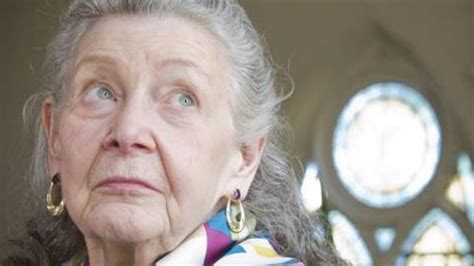A Quote by Barry Lopez
If there is a stage at which an individual life becomes truly adult, it must be when one grasps the irony in its unfolding and accepts responsibility for a life lived in the midst of such paradox.
Quote Topics
Related Quotes
There is no definitive list of the duties of a stage manager that is applicable to all theaters and staging environments. Regardless of specific duties, however, the stage manager is the individual who accepts responsibility for the smooth running of rehearsals and performances, on stage and backstage.
The most important form of incremental change is the decision by the individual to become vegan. Veganism, or the eschewing of all animal products, is more than a matter of diet or lifestyle; it is a political and moral statement in which the individual accepts the principle of abolition in her own life. Veganism is the one truly abolitionist goal that we can all achieve - and we can achieve it immediately, starting with our next meal.
There is provided an escape from the narrowness and poverty of the individual life, and the possibility of a life which is other and larger than our own, yet which is most truly our own. For, to be ourselves, we must be more than ourselves. What we call love is, in truth . . . the losing of our individual selves to gain a larger self.
Jesus is apt to come, into the very midst of life at its most real and inescapable moments. Not in a blaze of unearthly light, not in the midst of a sermon, not in the throes of some kind of religious daydream, but...at supper time, or walking along a road...He never approached from on high, but always in the midst, in the midst of people, in the midst of real life and the questions that real life asks.
The Fascist accepts life and loves it, knowing nothing of and despising suicide; he rather conceives of life as duty and struggle and conquest, life which should be high and full, lived for oneself, but not above all for others those who are at hand and those who are far distant, contemporaries, and those who will come after.
It did not really matter what we expected from life, but rather what life expected from us. We needed to stop asking about the meaning of life, and instead to think of ourselves as those who were being questioned by life—daily and hourly. Our answer must consist, not in talk and meditation, but in right action and in right conduct. Life ultimately means taking the responsibility to find the right answer to its problems and to fulfill the tasks which it constantly sets for each individual.
To the man who is truly ethical all life is sacred, including that which from the human point of view seems lower in the scale. He makes distinctions only as each case comes before him, and under the pressure of necessity, as, for example, when it falls to him to decide which of two lives he must sacrifice in order to preserve the other. But all through this series of decisions he is conscious of acting on subjective grounds and arbitrarily, and knows that he bears the responsibility for the life which is sacrificed.
Vocation does not come from willfulness. It comes from listening. I must listen to my life and try to understand what it is truly about-quite apart from what I would like it to be about-or my life will never represent anything real in the world, no matter how earnest my intentions…..Before I can tell my life what I want to do with it, I must listen to my life telling me who I am. I must listen for the truths and values at the heart of my own identity, not the standards by which I must live-but the standards by which I cannot help but live if I am living my own life.



































